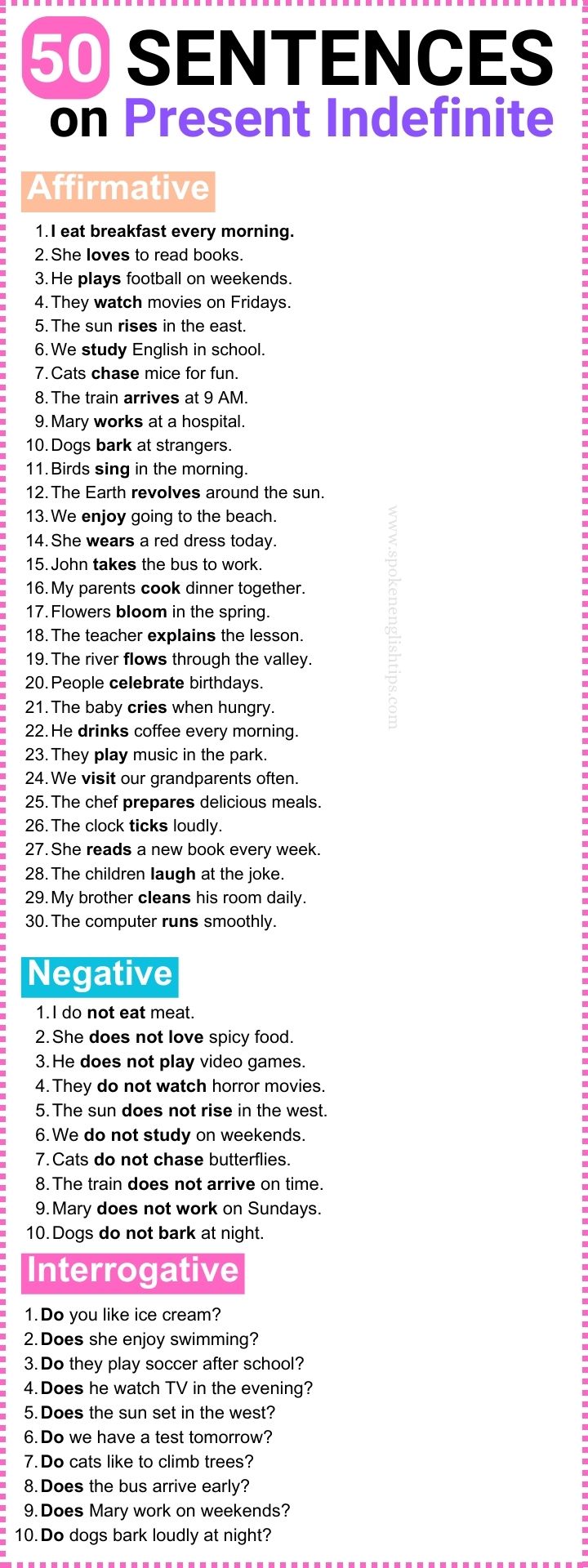Present indefinite tense is a grammatical tense used to describe actions or situations that are happening regularly, habitually, or are general truths. In this tense, the action is not tied to a specific time and is expressed in its base form or with the addition of an “-s” or “-es” ending for third-person singular subjects (he, she, it).

Affirmative Sentences
- I eat breakfast every morning.
- She loves to read books.
- He plays football on weekends.
- They watch movies on Fridays.
- The sun rises in the east.
- We study English in school.
- Cats chase mice for fun.
- The train arrives at 9 AM.
- Mary works at a hospital.
- Dogs bark at strangers.
- Birds sing in the morning.
- The Earth revolves around the sun.
- We enjoy going to the beach.
- She wears a red dress today.
- John takes the bus to work.
- My parents cook dinner together.
- Flowers bloom in the spring.
- The teacher explains the lesson.
- The river flows through the valley.
- People celebrate birthdays.
- The baby cries when hungry.
- He drinks coffee every morning.
- They play music in the park.
- We visit our grandparents often.
- The chef prepares delicious meals.
- The clock ticks loudly.
- She reads a new book every week.
- The children laugh at the joke.
- My brother cleans his room daily.
- The computer runs smoothly.
Negative Sentences
- I do not eat meat.
- She does not love spicy food.
- He does not play video games.
- They do not watch horror movies.
- The sun does not rise in the west.
- We do not study on weekends.
- Cats do not chase butterflies.
- The train does not arrive on time.
- Mary does not work on Sundays.
- Dogs do not bark at night.
Interrogative Sentences
- Do you like ice cream?
- Does she enjoy swimming?
- Do they play soccer after school?
- Does he watch TV in the evening?
- Does the sun set in the west?
- Do we have a test tomorrow?
- Do cats like to climb trees?
- Does the bus arrive early?
- Does Mary work on weekends?
- Do dogs bark loudly at night?

